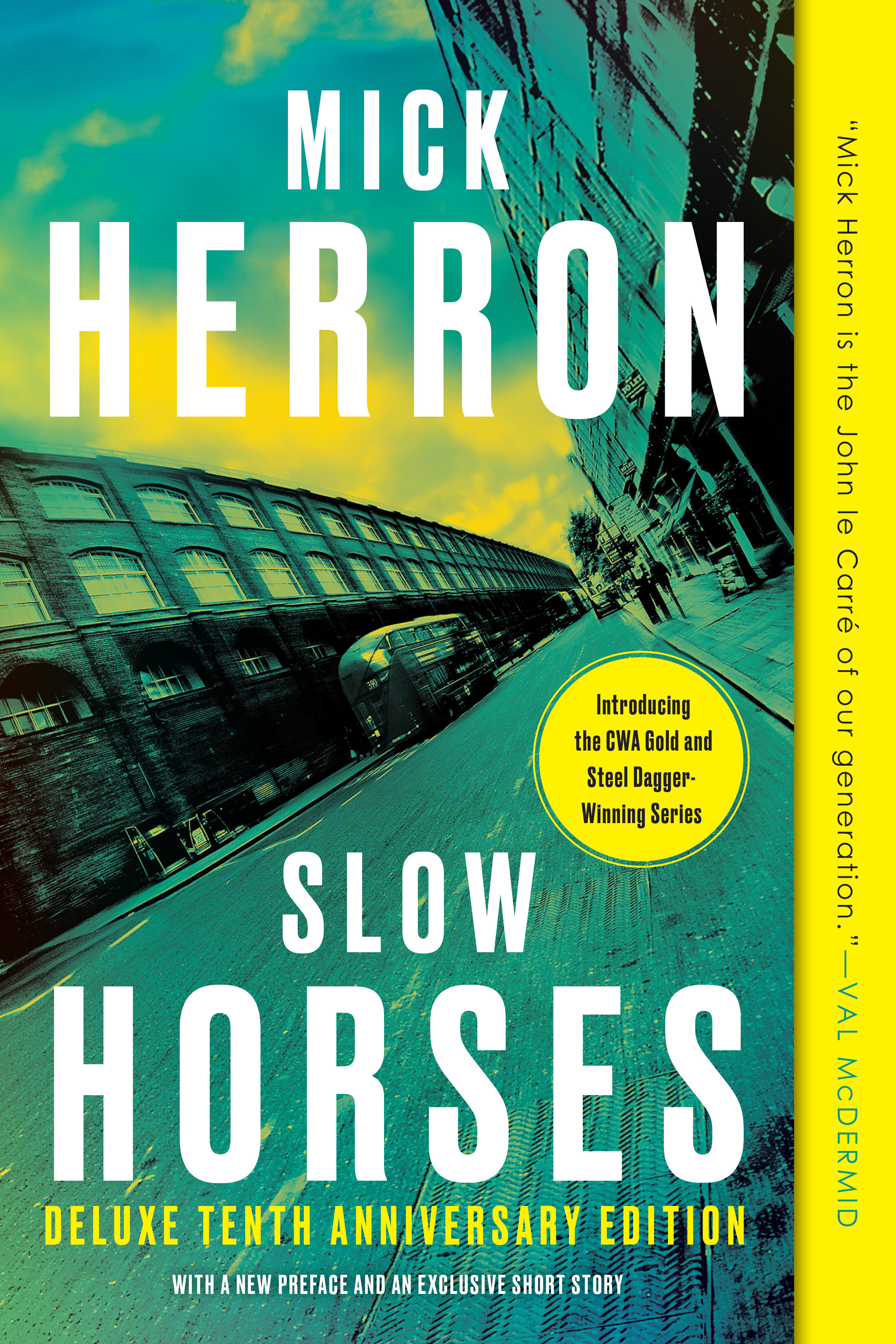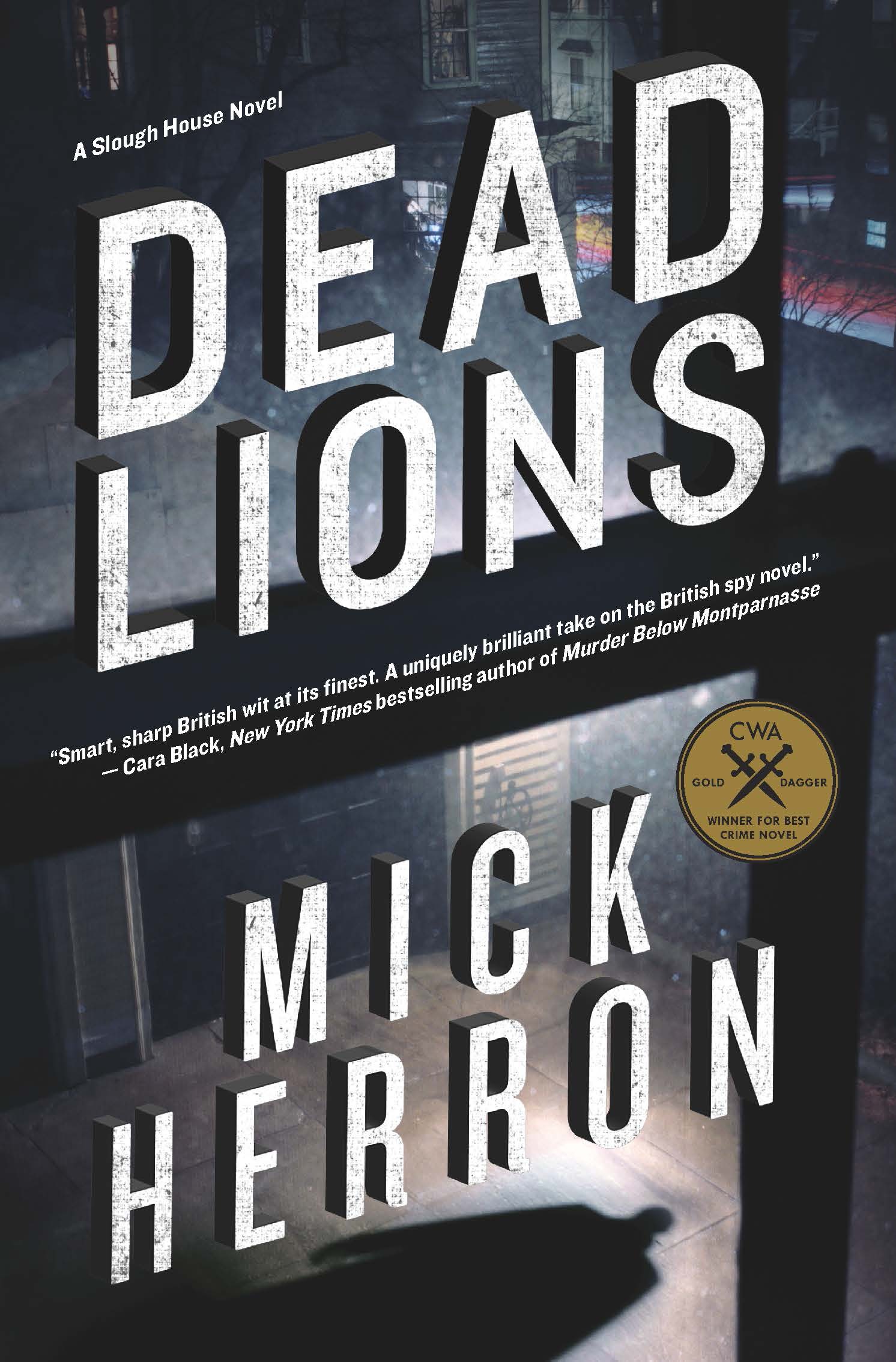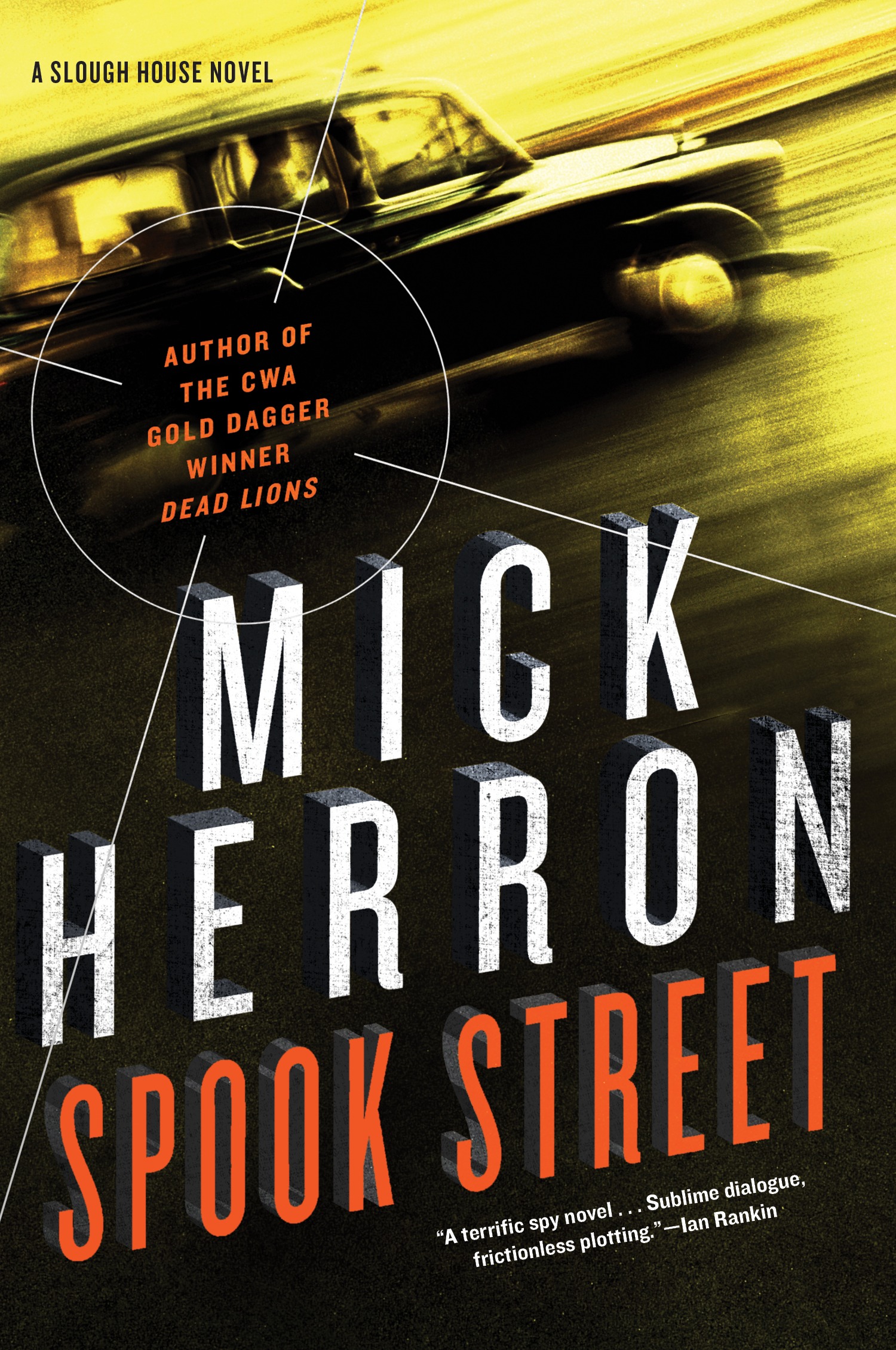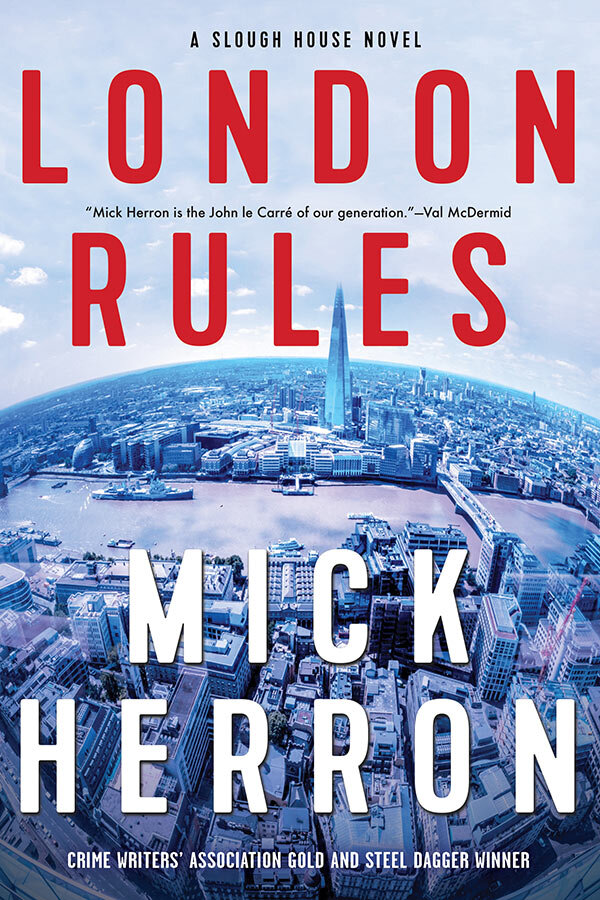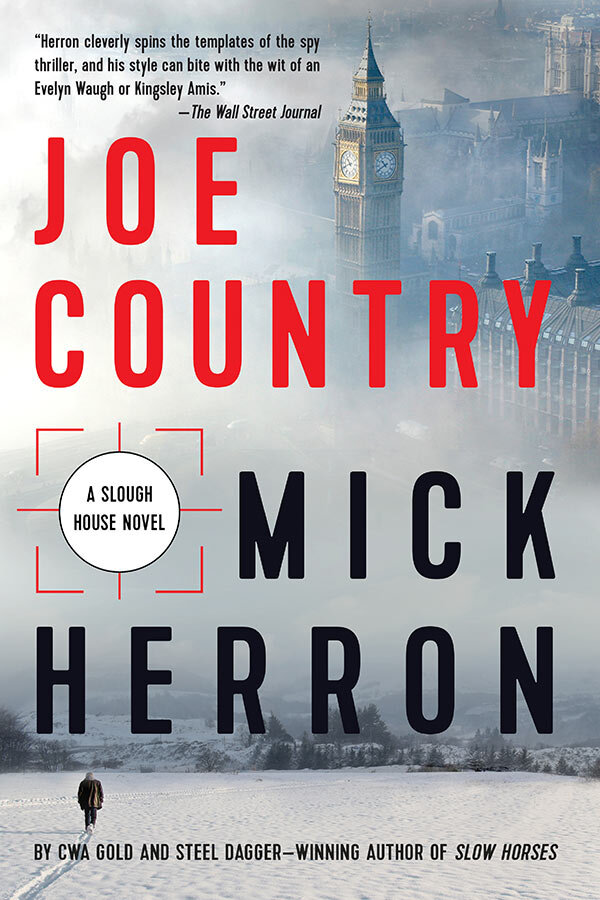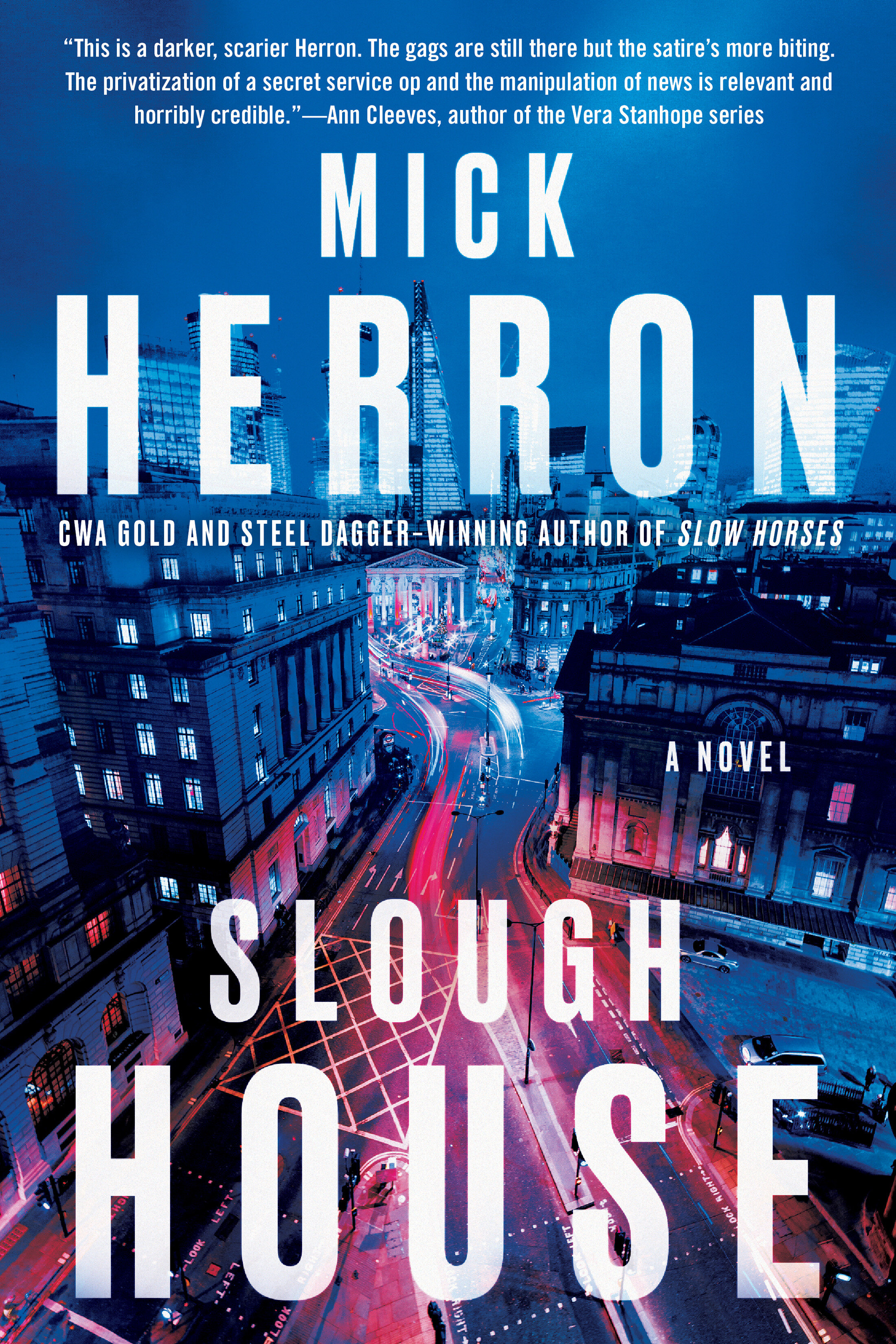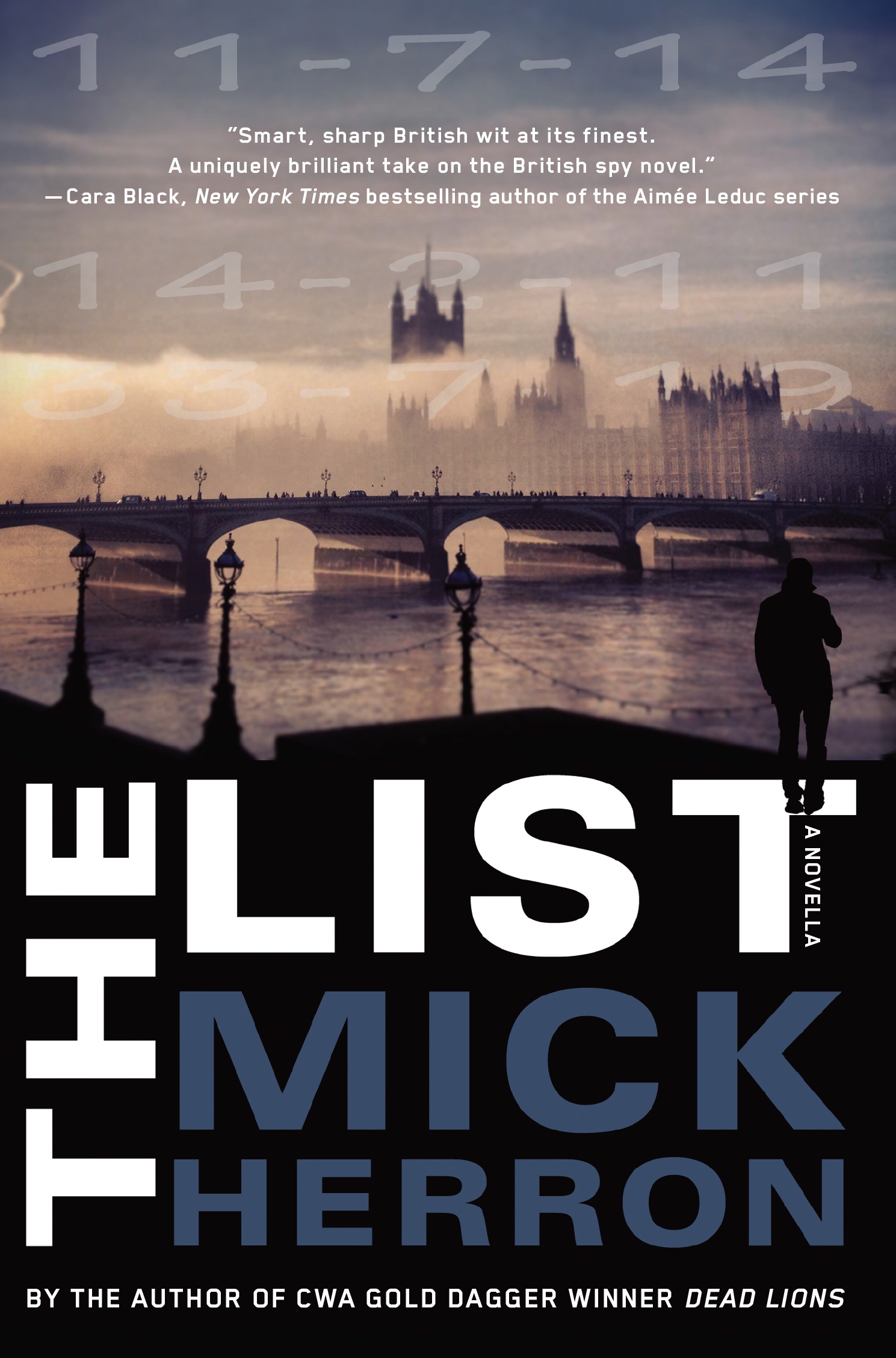Hell's Bells
Devilishly Good Spy Fiction
Web of Intrigue meets Comedy of Errors in Mick Herron’s Slough House series, a deft blend of high stakes espionage and razor-sharp workplace humor. Imagine John le Carré or Len Deighton writing an episode of The Office: serious spy fiction infiltrated by water-cooler warfare. This blend of humor and pathos, high and low brow, has won the series numerous awards (including the CWA’s Steel, Gold and Silver daggers) and a massive international readership set to grow with the production of a Gary Oldman-helmed adaptation of the first two books in the series for AppleTV+.
At the heart of the series a special, cordoned off branch of MI5, England’s secret service known as Slough House. Here you won’t find any George Smileys, James Bonds, Emma Peels, or John Steeds. Instead, you will find a particular sort of agent known as a “Slow Horse.” These are spies with one foot already out the door—too much of a liability to entrust with high priority assignments, yet expendable enough to keep on-board to take a fall when the occasion calls for it. Their backgrounds are a mixture of comic incompetence and tragic circumstance: Shakespearean fools and wounded souls. Herron populates his world with a perfectly balanced cast that allows for comedy without ever sacrificing the gravity of the situations at hand.
For all the laughs, one might be tempted to call Herron's novels political satires, but a ripped-from-the-headlines feeling permeates the Slough House series and gives them a sense of immediacy and prescient insight. The plots chart a complex path, from a post-Cold War global landscape to a new wave of 21st-century terrorist threats, to a post-Brexit England that is divided by a dysfunctional government, conservative nationalism, xenophobia, and class conflict. Distinctly contemporary touches—such as foreign hackers and the use of social media to galvanize and incite an uneasy populace—distinguish Herron as not only a skilled orchestrator of fictional thrills but also a sage political observer of modern times.
***
Our introduction to the series is Slow Horses, acclaimed as one of “The 20 best spy novels of all time” by The Telegraph. After bungling his a major assignment, agent River Cartwright finds himself standing in the rain waiting to nab the garbage of a journalist with ties to right-wing extremists—his latest task as a new member of the back bench at Slough House. But when a video surfaces online of a kidnapped Pakistani teenager threatening to decapitate him in 48 hours, the Slow Horses and River spot a chance to prove they’re still in the game. Check out the sharp new Deluxe Edition paperback with bonus materials recently reissued by Soho Crime.
Slow Horses also introduces Herron’s playful writing style, a sleight-of-hand that challenges readers to read between the lines and look beneath the surface of any situation. Nothing is ever as it seems. Herron also favors short, kinetic bursts of activity that resemble cinematic editing (we can’t wait to see the limited series adaptation). Switching between multiple characters and planes of action at lightning speed, Herron barrels toward an explosive ending and the glimmering promise of more from the slow horses. Read this one and you’re hooked for the series.
In its follow-up, Dead Lions, a retired Cold War-era agent, Dickie Bow, is found dead on a bus, with no apparent signs of foul play—which is enough to suggest foul play to Jackson Lamb. Bow had gone AWOL right before the collapse of the Berlin Wall, claiming to have been abducted by Alexander Popov, a phantom Soviet agent that no one could ever prove existed. To solve the murder, it is up to Slough House to solve a decades-old mystery that even the sharpest of agents couldn’t explain.
Don’t let the size of The List fool you. This entry in the series is a delicious little novella (a pattern Herron has repeated throughout the series to the delight of series fans), and one of the most enjoyable. When retired spy Dieter Ross passes away in his sleep reading Yeats and listening to Arvo Pärt, his handler, John Bachelor, thinks he has just crossed one responsibility off his list. And then Bachelor is told that Ross had a secret bank account. Was he a double agent? What secrets did he spill? Bachelor’s attempt to cover up any wrongs before they come to light leads, where else, but to Slough House.
The next, full length installment, Real Tigers, finds all the Slow Horses gathered for a meeting. All except for one. Who has been kidnapped. And when the kidnappers call the agents demanding ransom, you can count on them to make all the wrong decisions. Spook Street, River Cartwright’s family heritage comes to light. His grandfather, O.B., has begun to lose his memory. While River is concerned for his grandfather’s health, others are concerned that he hasn’t forgotten enough and, in his dementia, might spill his secrets.
London Rules finds an assistant the the Prime Minister beset on all sides— by tabloid reporters, power-hungry opposition MPs, anointed local politicians with dark pasts, his own eagel-eyed supervisor—all while terrorist attacks are happening through Britain and the slow horses are seemingly doing their best to make a difficult situation worse.
In The Marylebone Drop, another novella-length entry in the series, a retired spy convinced he’s witnessed a covert exchange outside a London cafe sets off an increasingly fraught cascade of events when he decides to make a report to his handler. Joe Country, Herron drags his disgraced MI5 spies across the snowy Welsh countryside in a dangerous, misguided escapade based on nothing more than a hunch: Louisa Guy has an inkling that a teenage boy who is not taking his mother’s calls might be in real trouble. When she takes time off to pursue her hunch, Jackson Lamb, the slow horses’ irascible (and maybe a little grotesque) boss, has a hunch of his own: that Louisa’s self-assigned mission is an important one, and that it will require the other slow horses if Louisa’s going to make back to London alive. The Catch is the most recent entry in the series of novellas focused retired spy handler John Bachelor, but this time it’s Bachelor who has made himself a liability.
Slough House marks a change in tone and offers the perfect entry point into the series for readers just finding Herron. As Ann Cleeves notes, “This is a darker, scarier Herron” that finds the slow horses seemingly disappearing not only from the official record, but also from the face of the earth in a series of suspicious deaths. With a populist movement taking to the streets of London and a media whose coverage is imminently purchasable, Jackson Lamb and his team of misfits isolated, fighting for their own as usual.
***
As much as the complex, fully wrought cast or the high wire plotting, what makes these books so delectable to read is Herron’s playful, lyrical prose. He allows plots and descriptions to unfold with a deliberateness that marks an obvious pleasure for the words themselves. An early passage from London Rules captures the song-like nature of his phrasing:
Noon comes with bells on, because this is London, and London is a city of bells. From its heart to its ragged edges, they bisect the day in a jangle of sound: peals and tinkles and deep bass knells. They ring from steeples and clocktowers, from churches and town halls, in an overlapping celebration of the everyday fact that time passes.”
Never one to repeat himself, Herron also always finds a new, clever way to draw readers into the world of Slough House. In Slow Horses, he begins with a sweeping architectural tour of the home of the horses, their offices on Aldersgate Street. In Dead Lions, a cat roams the halls with readers. In Real Tigers, a “wandering spirit in search of a rest place” passes through Sloug House. In Joe Country, Herron opens the book with a stunning piece of imagery characteristic of his careful, vivid style:
The owl flew screaming from the barn, its wingtips bright with flame. For a moment, silhouetted against the blank sky, it was a dying angel, scorched by its own divinity, and then it was just a sooty husk, dropping like an anvil into the nearby trees.
While they might not be the world’s greatest secret agents, the spies of Slough House have made a home for themselves in an ever-growing army of diehard readers around the world, and vaulted Mick Herron to the the position of one of the most respected voices in contemporary spy fiction.
Praise for the Slough House series
“Out of a wickedly imagined version of MI5, [Herron] has spun works of diabolical plotting and high-spirited cynicism, their pages filled with sardonic wit, their characters approaching the surreal.”
—The Wall Street Journal
“Herron writes squeakingly well-plotted spy thrillers. More than that, he composes—at the rate of a pulpist—the kind of efficient, darkly witty, tipped-with-imagery sentences that feel purpose-built to perforate my private daze of illiteracy. More than that, he’s a world-bringer, the creator of a still-growing fictional universe with its own gravity, lingo, and surface tension.”
—The Atlantic
“Herron blends character, place and espionage into a riveting melange that I’ve only encountered in the best of John le Carré or Len Deighton . . . Read one and you're hooked for the whole series.”
—The Globe and Mail
"[Herron] really is funny and his cynicism is belied, here and there, by flashes of the mingled tenderness and anger that seem to define Britain’s post-Brexit self-reflections."
—USA Today
“[Herron is the] le Carré of the future . . . The characters are brilliant.”
—BBC, The Oxford Book Club
“A series that hits every mark—wicked, black humor, complex characters and breathless plotting.”
—The Cleveland Plain-Dealer
Slough House, the latest novel from Mick Herron, is available in hardcover and ebook.
Slow Horses, book 1 in the Slough House series, is available now in paperback and ebook.
“Herron writes squeakingly well-plotted spy thrillers . . . He’s a world-bringer, the creator of a still-growing fictional universe with its own gravity, lingo, and surface tension.”
Mick Herron was born in Newcastle and has a degree in English from Balliol College, Oxford. He is the author of the Oxford series, the Slough House series, the standalone books This Is What Happened, Nobody Walks, and Reconstruction, and the novella The List. His work has been nominated for the Macavity, Barry, Shamus, and CWA Steel Dagger Awards, and he has won an Ellery Queen Readers Award and the CWA Gold Dagger for Best Crime Novel. He lives in Oxford. Visit his website.




